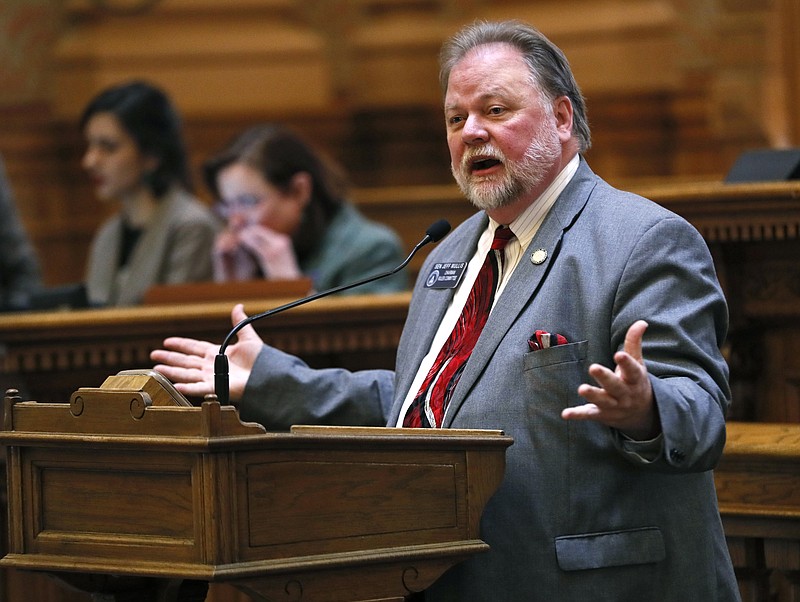As Georgia state senators debate how tough they should be on electric membership corporations that want to sell high-speed Internet, a key player in the legislation defended the high bar he has set.
Regulated Industries and Utilities Chair Bill Cowsert, R-Athens, added an amendment to the bill Tuesday, demanding that EMCs provide Internet to every member of their service areas if they choose to sell broadband. He argued that the state gave EMCs great advantages when it granted the co-ops territorial, electric monopolies in the 1970s. He believes they can afford to provide service in the most secluded, most expensive parts of the state.
But the bill's sponsor, State Sen. Steve Gooch, R-Dahlonega, said Cowsert's amendment is a "poison pill." He said EMCs won't be able to afford Cowsert's demand.
At the end of a hearing Thursday, State Sen. Frank Ginn moved to kill Cowsert's change. But before the issue came to a vote, State Sen. Jeff Mullis asked for a breather. He successfully lobbied to revisit the issue next week.
"I'm not sure we're prepared to move forward," Mullis said, noting that it was almost 5 p.m.
Earlier in the hearing, Cowsert argued that lawmakers allowed the free market to harm members of rural communities in Georgia. Private companies won't add the infrastructure for broadband to certain communities because there aren't enough customers in the region. The investment isn't financially smart for the companies.
"We've got the haves and have nots," Cowsert said. "The free market has not helped get the Internet, especially high speed, to the areas of the state that are not densely populated. I don't know how this does help that. I have some serious questions."
Gooch offers his bill as a potential answer. He said EMCs may be more likely to expand to unserved areas. They can also compete for federal grants that address the issue. But he and a lobbyist for Georgia EMC said that Cowsert's strict demand will be too expensive. EMCs will simply not sell broadband, just like now.
But, Cowsert countered, his amendment gets to the whole point of the bill.
"I'm having a hard time seeing how this helps the unserved people [without the amendment]," he said.
Members of the committee have appeared split on the issue. On Tuesday, State Sen. John Kennedy argued that Cowsert's amendment accomplishes the "number one objective" of the bill. On Thursday, Committee Vice Chair Matt Brass asked several lobbyists testifying on behalf of private companies whether they could afford the demand Cowsert is placing on EMCs. Stephen Loftin, executive director for the Georgia Cable Association, dodge the question, telling Brass that's not his group's concern.
State Sen. David Lucas, D-Macon, argued in support of Gooch on Thursday. He said Cowsert's demand is unrealistic for the EMCs.
"How do we make somebody offer to everybody and we don't have a financial plan that gives us the money to provide all of that?" he said. "You usually start in baby steps, building it out. And then you extend it."
Mullis, R-Chickamauga, did not tip his hand in the debate. But after Cowsert discussed his belief that lawmakers previously failed rural residents by not creating stricter demands on Internet providers, Mullis told him he was "absolutely right."
Contact staff writer Tyler Jett at 423-757-6476 or tjett@timesfreepress.com. Follow him on Twitter @LetsJett.
